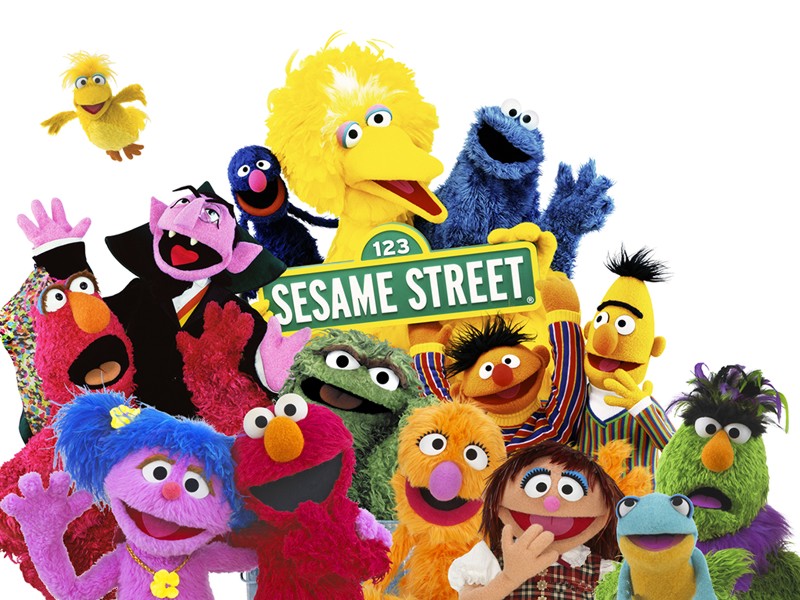I have a two-year old daughter. You know what that means: Overwhelming cuteness balanced with wanting white foods exclusively on most days, potty training and a litany of nos. Along with this, I also have the delight of reliving my childhood experiences with fresh eyes, as my sweet girl learns and explores life for the first time. My daughter has recently taken to Sesame Street and what a Pandora’s Box of emotion her newfound interest has opened for me! For many, myself included, Sesame Street connotes many wonderful memories and feelings — joy, happiness, curiosity, love of learning and of course, ABCs and 123s.
What is remarkable to me is that I watched this show as a child, and **cough** years later, the show is still relevant, highly-watchable and building a new audience of kids of all ages and races. A 1996 study found that 95% of U.S. preschoolers had watched the show, with 77 million Americans having tuned in throughout its tenure. As of 2014, Sesame Street has won 159 Emmy Awards and 8 Grammy Awards—more than any other children’s show.
Can you tell me how to get to long-term business success and worldwide brand recognition?
Sesame Street is a master class in longevity. The show was founded in 1969, and has stood the test of time. Organizations can learn a lot from Grover and pals. Here are some tips from the ‘Street’ that you can apply to your organization:
- Have unwavering dedication to mission and values — Sesame Street is dedicated to helping “kids grow smarter, stronger and kinder” and has not drifted from this focus in almost five decades.
- But…be flexible with how you fulfill your mission and adapt to your environment — Despite its strong adherence to its core scope of work, Sesame Street has not relied on the same tools or form to deliver its content. The show has responded to emerging trends and demands such as jazzing up its opening jingle (hip hop-inflected at that) and tackling topics that reflect and affirm diversity. The show has even waded into the political waters in a sense, addressing children caught in the balance amidst the U.S. dilemma of mass incarcercation.
- Know and leverage your strengths — I don’t exactly get the allure, but Elmo is King. Sesame Street has recognized this and leveraged the cult of Elmo through spin-off series, products (remember the Tickle Me Elmo Hunger Games of 1996?) and more. Sesame Street has also spun-off other characters, including more recently, the female monsters, Abby Cadabby and Zoe.
- Diversify your funding stream/revenue model — Sesame Street started with the support of a Carnegie Institute grant. To avoid being vulnerable to fluctuations in philanthropic support, producers decided to develop licensing agreements to create additional funding streams. They also eventually allowed advertising spots, but selected a company with a scope of work consistent with its own (Discovery Zone).
- Make your company a great place to work — This can only be stated anecdotally, but Sesame Street must have an awesome organizational culture that supports, appreciates and appropriately compensates its employees. Maria, Luis and Bob (82 years strong!) are still hanging around, infusing soul and warmth to the show. There are also new, younger human characters in the line-up that will continue the show’s legacy.
Of course, in its 46-year span, Sesame Street has not been immune to crises and controversies. However, the producers and leadership have managed to weather these and maintain the show’s prominence in the marketplace.
I became emotional watching the show the other day. Sesame Street evokes such warm memories of spending mornings at my grandma’s house and singing along with Kermit and Ladysmith Black Mambazo monsters ululating the ABCs.
Kermit sure makes being green and making green look easy.



